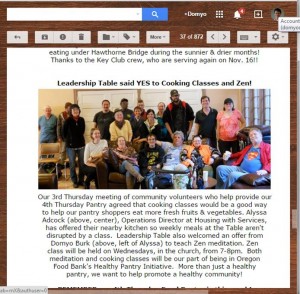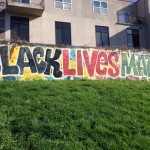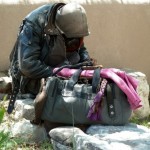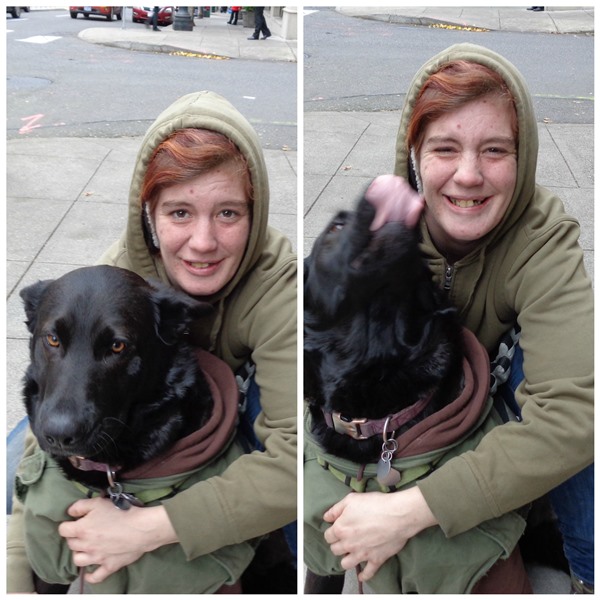*[that is, the Housed] who consider themselves friends of anyone who is not
Despite the general busyness of life recently, I have managed to keep moving forward on my vision for a Zen group for those who are homeless, no-or-low income, and those who are transitionally housed.
 The hardest part right now is deciding how to describe or name the population I want to serve. I definitely want those who are currently or formerly homeless to feel especially welcome. However, the state of homelessness can also be one associated with a certain amount of shame or embarrassment, so it may be best to simply extend an invitation to those who are no-or-low-income. This also includes many people living in subsidized housing, particularly in downtown areas, many of whom would be homeless if there wasn’t a place for them in some program or other.
The hardest part right now is deciding how to describe or name the population I want to serve. I definitely want those who are currently or formerly homeless to feel especially welcome. However, the state of homelessness can also be one associated with a certain amount of shame or embarrassment, so it may be best to simply extend an invitation to those who are no-or-low-income. This also includes many people living in subsidized housing, particularly in downtown areas, many of whom would be homeless if there wasn’t a place for them in some program or other.
It may be most polite to simply offer a free Zen meditation group downtown, but if I’m not specific enough about who the group is for it’s possible I’ll end up with a core of interested middle class people who will inadvertently make homeless folks feel like they don’t belong. Tricky. While I’m happy to share Zen with anyone, people with some means can travel to access Zen and meditation in many different areas of the city, while those I am particularly interested in serving cannot. My husband suggested saying the group is for “the homeless and their friends.” Short and sweet. Come whether you’re homeless or housed, but if you’re housed you’d better be a friend to those who are not. We’ll see what I end up calling it…
As I share the story of this project, I am particularly interested in seeing if I can do so without alienating my readers. If you are anything like me, tales of how good and active someone else is can just make me feel guilty or pressured. “Good for you,” I have wanted to say in the past. “I don’t have the time or inclination to do what you are doing. I’m still busy and doing the best I can, trying to be kind and to be of benefit to the world – so don’t judge me just because I’m not doing something I can point to as ‘social service’ or ‘activism.’ Please don’t imply that I need to jump on your bandwagon if I’m a good person.”
I hope I can share my experience in such a way that it will seem relevant to anyone who has a vision they have not yet acted to fulfill. That vision could be anything that could increase the happiness in the world, such as creating art, strengthening community, providing companionship, or supporting family. It doesn’t necessarily have to be political or involve what we commonly think of as community service. What interests me most is how we ordinary, busy folks find the time, energy, and courage to act on our beautiful visions. And once we do, how it works – how the process changes us, how we sustain our efforts, and the challenges we face. Because the world needs all of us to make an extra effort if we’re going to survive.
That said, I’ll go on with my story:
I’ve had great encouragement about this project from several people. Most notably, a Zen priest who has done work with the homeless and no-to-low-income people in San Francisco for many years, and the outreach minister at the parish in downtown Portland where I plan to start our group.
Rev. Jana Drakka said she was thrilled that I was considering starting a group for the homeless and their friends. You can read about some of her work here, and visit her website, Zendo without Walls. We spoke on the phone for an hour and a half, and she had great practical recommendations for how to best share Zen meditation and the Dharma with this population. Several things I would not have thought of without her input: Have people sit in chairs so meditation becomes something “normal” they can do anywhere, without special equipment; have people sit in a circle, as facing the wall can be too isolating and triggering; emphasize that the time spent in the group is “our little slice of heaven.” She also recommended getting familiar with the principles of Harm Reduction (improving health and well-being short of complete abstinence from drug and alcohol abuse), and taking care of anyone who might have PTSD by leaving the door ajar if meeting in a small room, and by teaching people to vividly recall a safe and happy time or place should they find themselves triggered.
Rev. Dr. John Paul Davis has been nothing but supportive since I first reached out to him. His enthusiasm and compassion are manifested daily as he oversees the various outreach programs that serve low-income and homeless folks at St. Stephen’s Episcopal Parish in downtown Portland. He loves people and has a vision for making St. Stephen’s and the various nonprofits it hosts into a vibrant community inclusive of all. Offering his community a meditation group as well? Wonderful!
I have been especially touched by the way Paul involves people as volunteers who may have been (or are being) served meals, offered groceries at the monthly pantry, or given a warm, safe place to spend time at St. Stephen’s. Paul holds a regular “Leadership Table” where such volunteers are invited to discuss the overall structure and culture of what is being offered by the nonprofit Clay Street Table. As you can see from the photo above, the Leadership Table thought adding a Zen meditation group sounded just fine. Although one friendly fellow responded without apology that he wouldn’t be coming… because he was already happy and didn’t need to meditate. More power to him!












